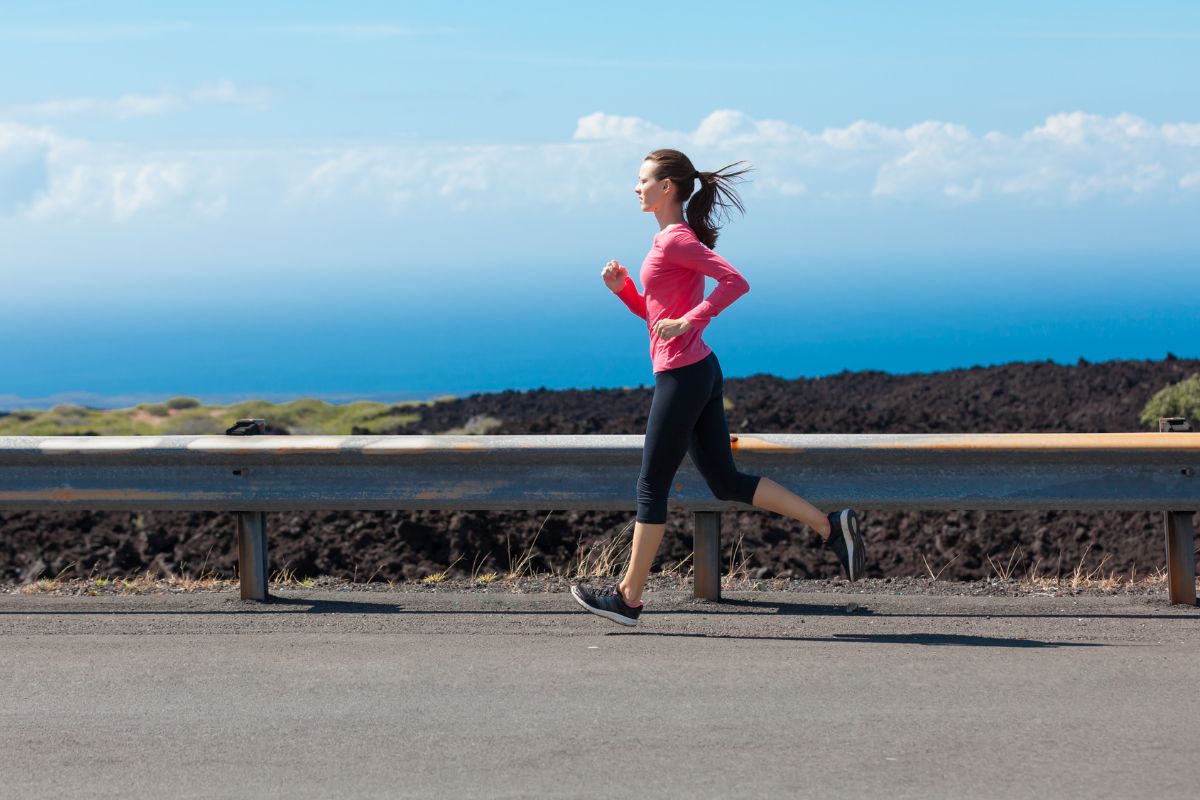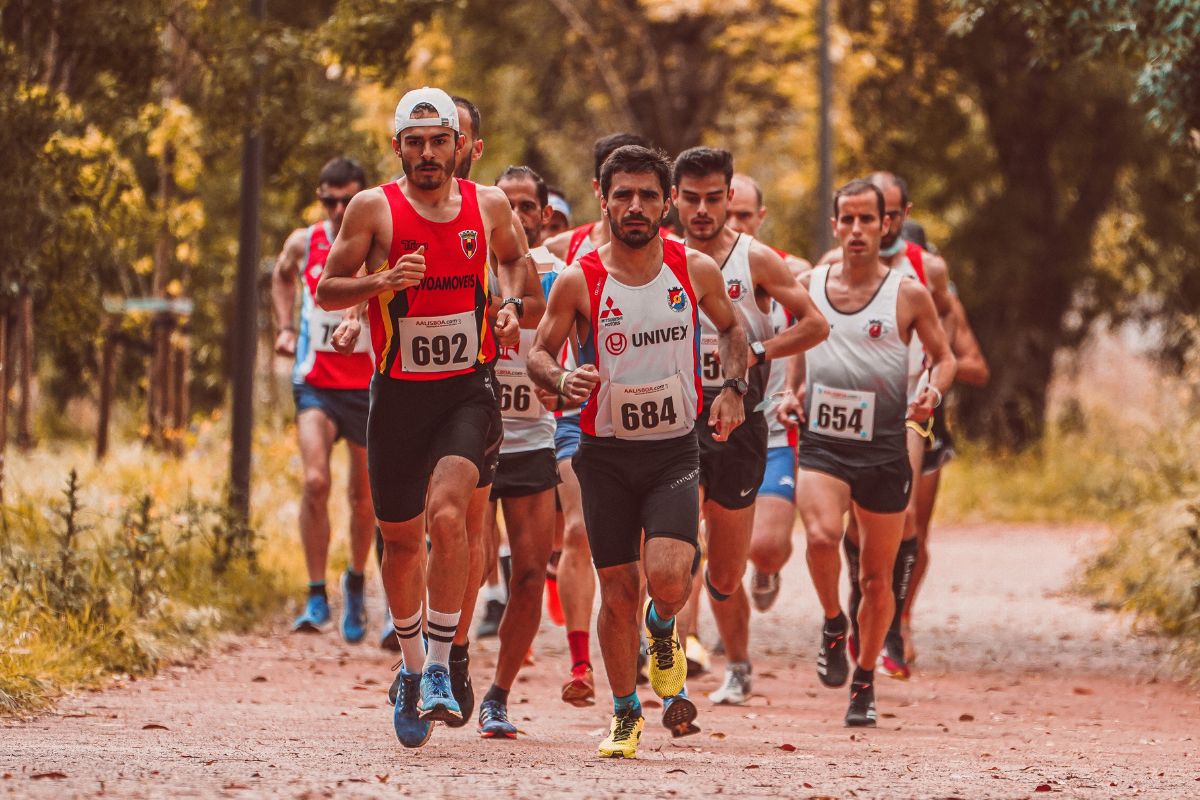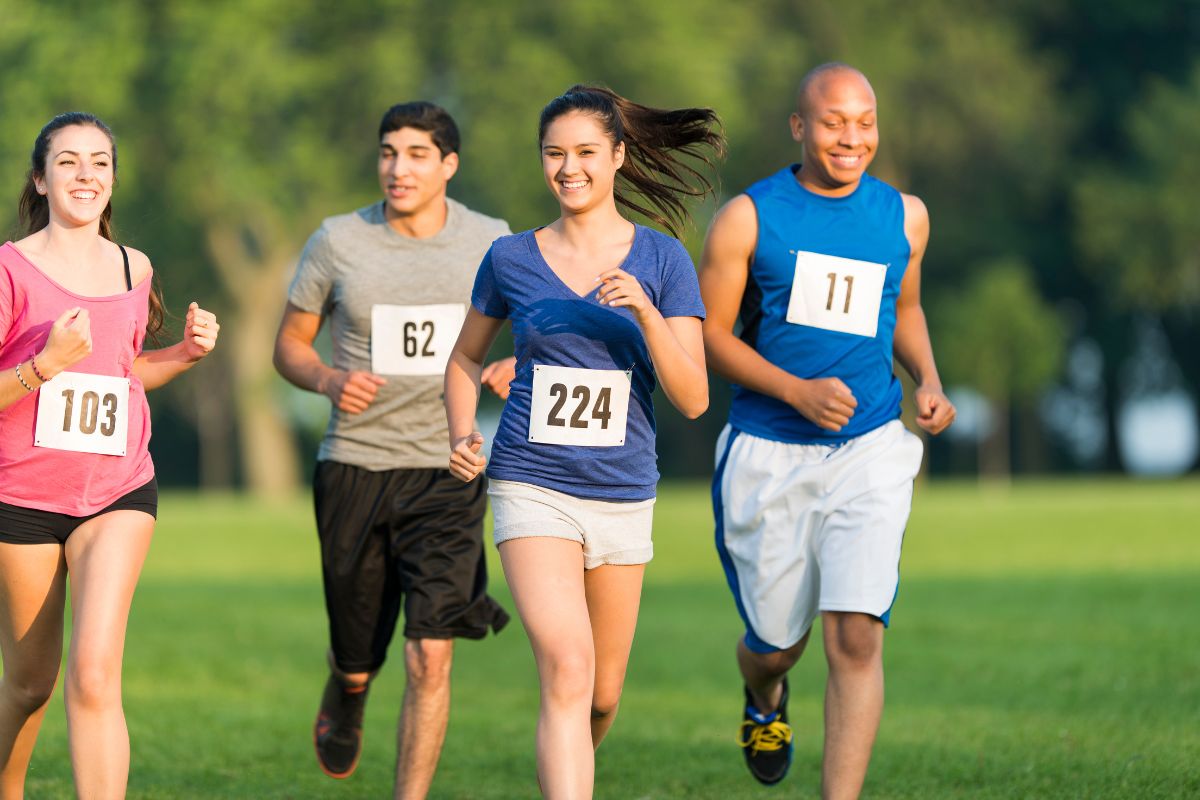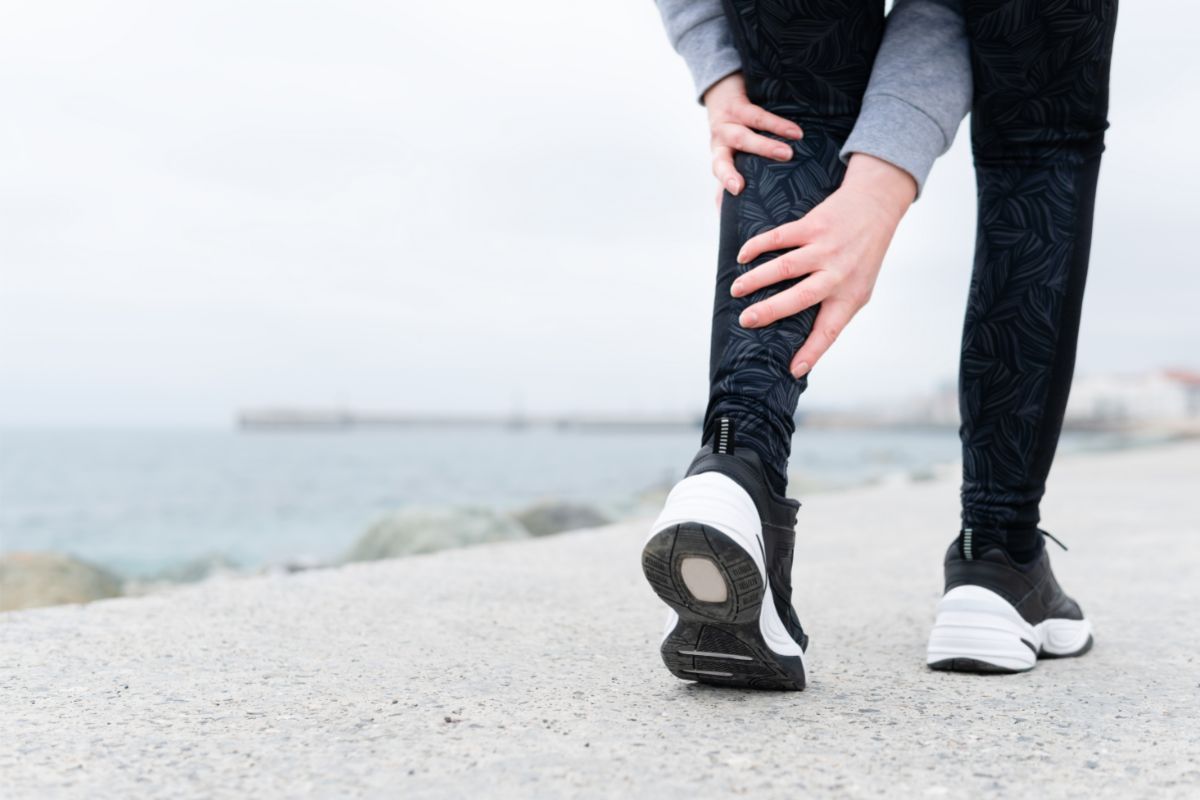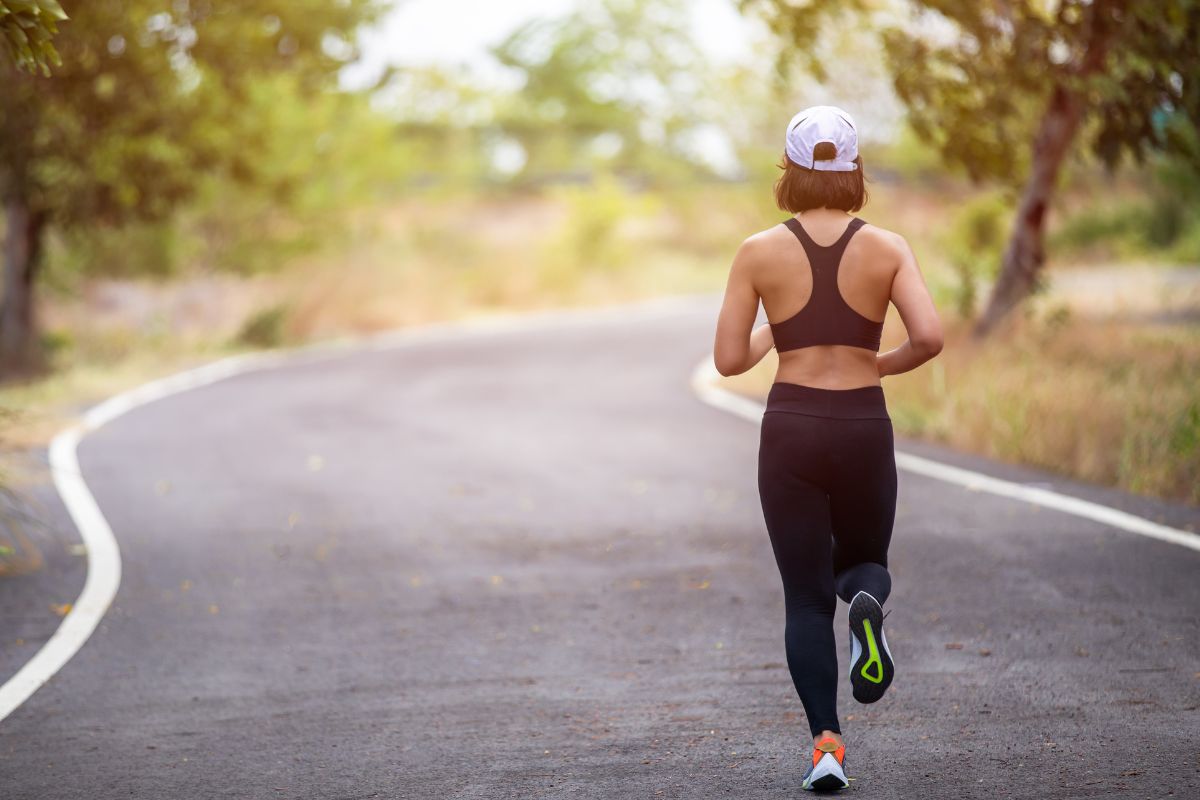While running has a huge number of benefits, such as boosting your mood, improving your general health, and benefiting cardiovascular health, it’s common that you may feel achy after a run.
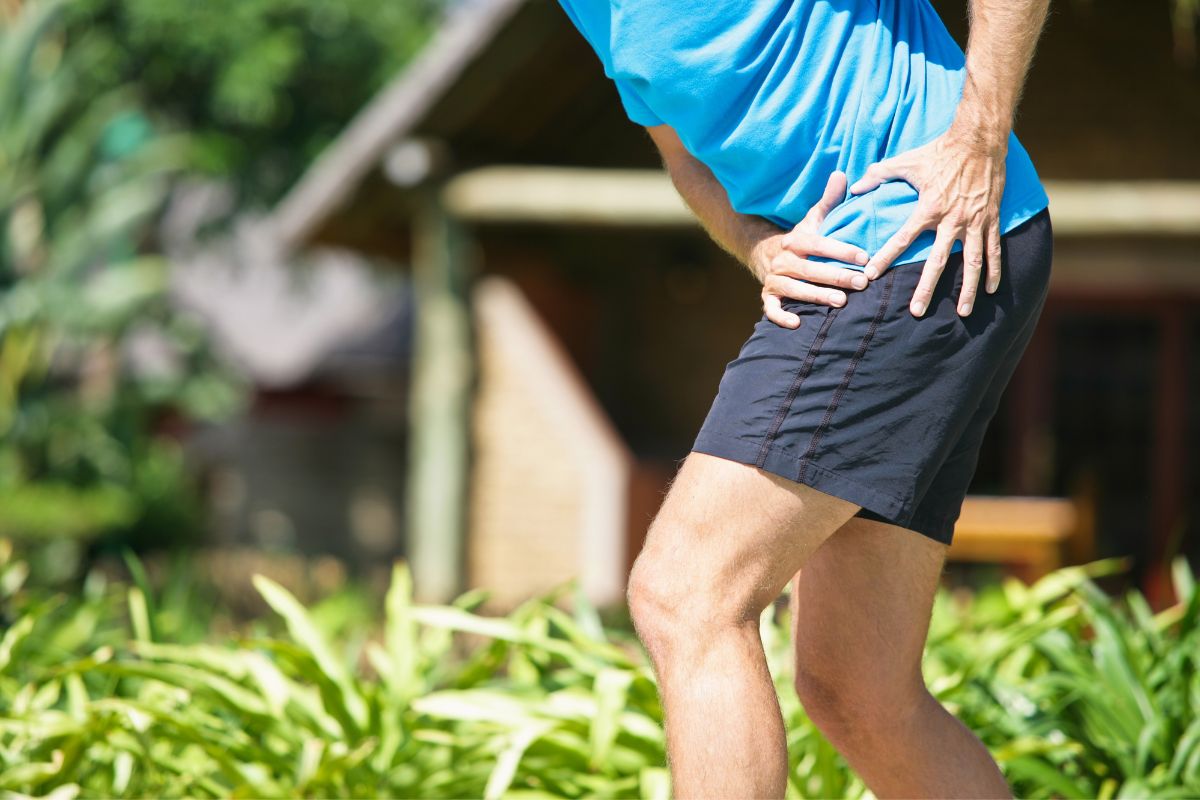
If you experience pains in your hips after running this is surprisingly common and it is caused by a variety of things.
Here we look at the most common causes of hip pain from running and advise how to treat and prevent this pain.
Common Causes Of Hip Pain After Running
1. Tendonitis And Muscle Strain
Tendonitis and muscle strain can be caused when the muscles in the hips are overused.
The symptoms can be aches and pains, and general stiffness in the hips.
These symptoms will be experienced when the hip is flexed or during and after running.
This can be treated by icing the affected area up to several times a day.
Taking nonsteroidal anti-inflammatory drugs (NSAIDS) as directed by the manufacturer will also aid the recovery process.
In more serious cases you may require physical therapy.
2. IT Band Syndrome
The Iliotibial (IT) Band is the tissue that connects the hip to the knee and shin bone and it can become irritated and painful when overused or from frequent repetitive movements, such as running.
Iliotibial Band Syndrome, ITBS, affects many runners. Symptoms are experienced on the outside of the hip and knee.
You may also hear or feel a popping or clicking noise when you move. Symptoms can also include tenderness in the hip, thigh, and knee.
The best way to treat ITBS is to ice the affected areas multiple times a day and to take NSAIDS as directed.
3. Hip Pointer
This cause is easy to spot as it is a bruise on the hip that leads to the affected area becoming bruised, sore, or swollen.
Rest is the best thing to allow the bruise to diminish and icing can also be helpful to reduce inflammation as well as compress elastic bandages.
4. Muscle Tendon Bursitis
There are fluid-filled sacs that cushion the muscles, tendons, and bones in the hip joint called bursae.
Pressure can be put on these sacs from repetitive movement and they become inflamed and painful.
This leads to muscle-tendon bursitis which is swelling, and red, irritation around the hip joint.
To treat this you will need to rest from all usual activities while taking NSAIDS and icing the area to reduce swelling.
In extreme cases, it is best to seek medical help as soon as possible.
5. Cartilage Tears
On the outside rim of a hip socket is a cartilage called the hip labrum which helps to stabilize and cushion the hip.
Tears can occur from repetitive movements, such as running.
Symptoms of a labral tear include clicking, locking, pain, or a catching sensation when you move.
This can be difficult to diagnose as symptoms won’t always be obvious.
If you suspect a labral tear it is best to speak to a medical professional to get a physical exam or an x-ray to confirm the tear.
A treatment plan will then be suggested by your medical care team.
6. Bone Fractures
If you break your hip this can lead to life-threatening complications, this is usually a result of a fall when running and is most common in older adults.
Symptoms include severe pain with any motion and the inability to put weight on the affected hip.
The only thing to do to treat a bone fracture is to seek professional health at a hospital as soon as possible to avoid life-threatening outcomes.
7. Osteoarthritis
The last common cause of hip pain after running is osteoarthritis, this is more common in older athletes who have had years of running impact their hips.
This condition can lead to the cartilage in the hip joint becoming brittle and possibly split or breaking down.
The loss of cartilage leads to irritation and pain in the hip joint.
It is best to speak with a medical professional as soon as you notice symptoms of osteoarthritis to get advice on how best to treat the condition.
Recovery
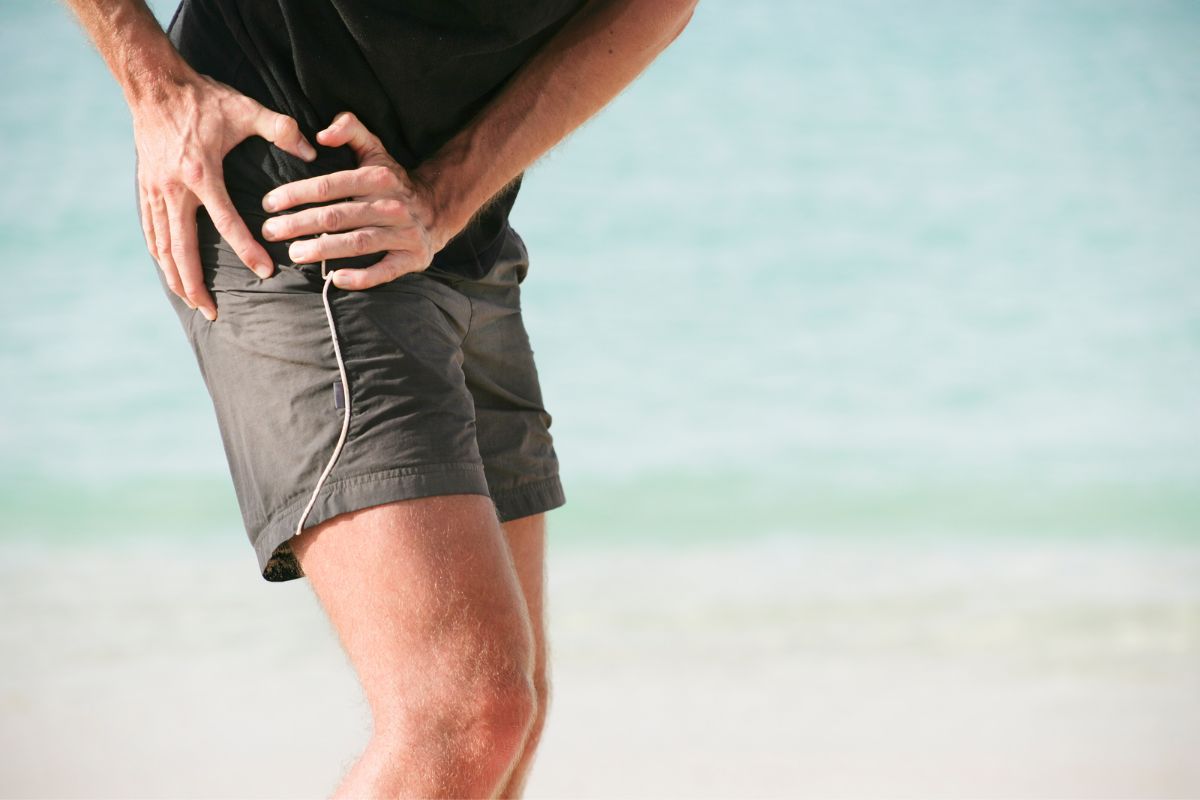
If you find that you are frequently experiencing hip pain after running it is advised that you take a break to allow your body to recover and recuperate.
When you begin to feel better you can start reintroducing activity again by going for walks, then light jogs, and eventually short runs to give your hip time to readapt to the force of running.
To aid the healing process the best thing you can do for your body is eat a healthy diet that includes plenty of foods high in calcium and vitamin D, such as salmon, and fortified foods like milk or cereal.
Epsom salt baths and magnesium cream are also a fantastic way of relaxing your muscles around the hip and this again will aid with the healing process.
Prevention
The best way of preventing hip pains, or any injuries, is to listen to your body.
If you feel any feelings of discomfort you should address this immediately before causing an injury.
Other methods include:
- Stretching before running to ensure the muscles are ready for activity. Stretching afterward is also very beneficial as a way to cool down the muscles.
- Invest in a good pair of running shoes to support your body as you move, and ensure they are shock absorbing.
- Get a running coach to check your stride is not the cause of your pain
- Work your muscles outside of running through strength and conditioning training. This will strengthen your muscles and improve your muscle’s training endurance.
Final Thoughts
The most important thing you can do if you are suffering from hip pain after running is to rest.
If you are still suffering from pain after running we advise you seek help from a sports medicine or an orthopedic doctor.
They can give a diagnosis and create a suitable treatment plan.
If your hip pain also triggers severe pain, swelling, or any other possible signs of infection, seek medical attention immediately.
- Can Dogs Run Faster Than Humans? (Running With Your Furry Friend) - October 4, 2022
- 10 Doggie Fun Runs You Will Love [Ultimate Guide] - October 4, 2022
- What Are Division Results In Running? - October 4, 2022

